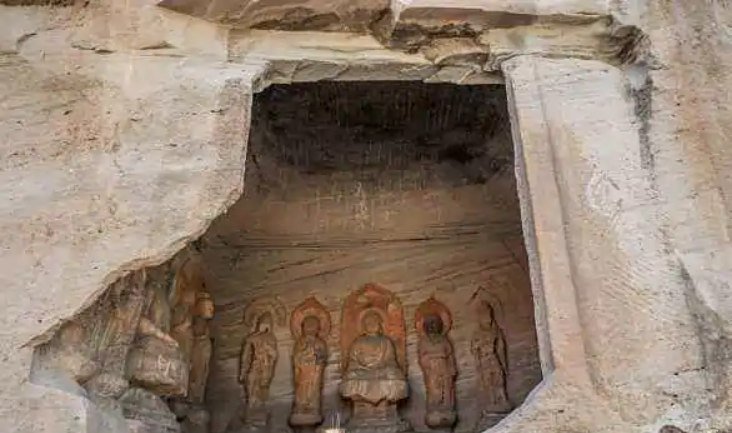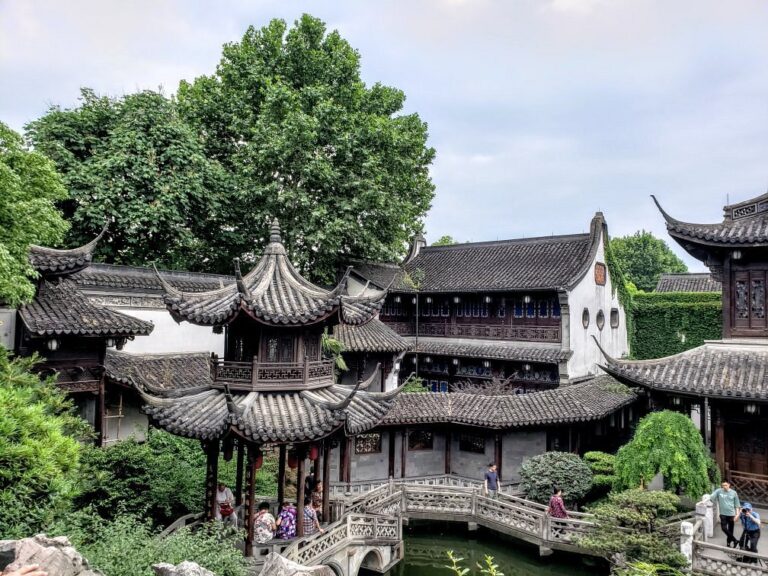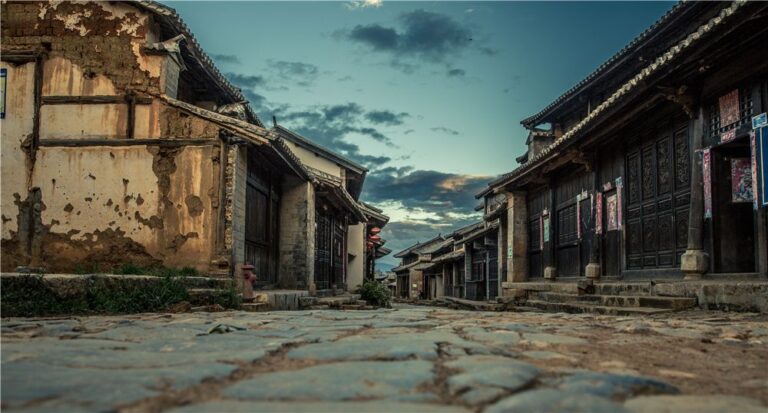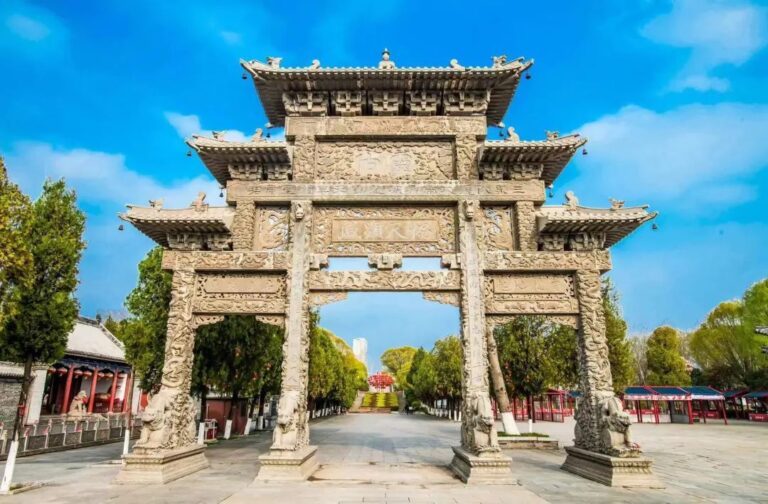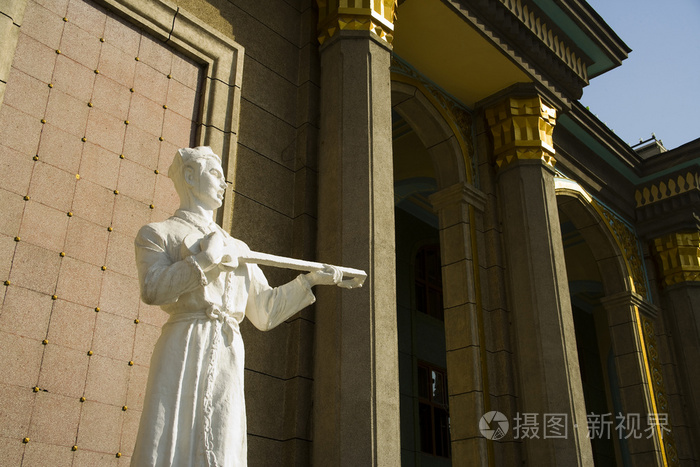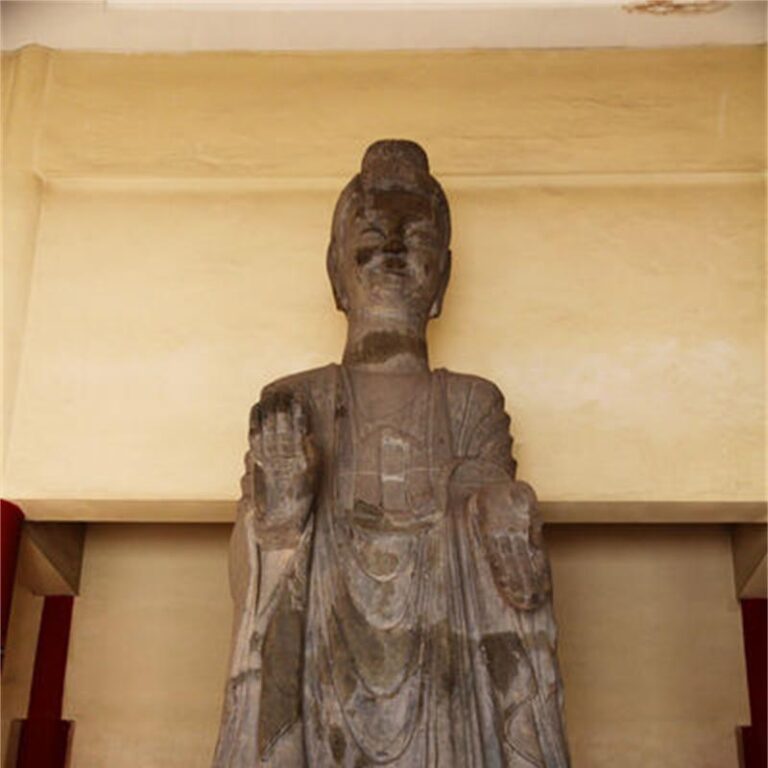Exploring Qiqihar Bukui Qingzhensi: A Spiritual Retreat in Northeast China
An Essential Guide to Visiting Qiqihar Bukui Qingzhensi
In This Guide
- An Essential Guide to Visiting Qiqihar Bukui Qingzhensi
- The Rich History of Qiqihar Bukui Qingzhensi
- Main Highlights: What to See at Qiqihar Bukui Qingzhensi
- Planning Your Visit: A Practical Guide
- Tickets, Hours, and Booking
- How to Get There
- Local Cuisine and Accommodation
- Frequently Asked Questions
- Final Thoughts on Your Trip
Nestled in the historic city of Qiqihar, the Bukui Qingzhensi (卜奎清真寺), also known as the Xin Hai Family Mosque, stands as a majestic testament to the rich tapestry of cultural and religious heritage in northeastern China. Established in 1684, a mere seven years before the founding of Qiqihar itself, this mosque is not just an architectural marvel but a symbol of the enduring legacy of the Islamic community in the region.
As the largest mosque in Heilongjiang Province, Bukui Qingzhensi encompasses two distinct sections: the Eastern and Western mosques, seamlessly connected by a shared courtyard. The unique architectural design, characterized by its traditional Islamic features, reflects a harmonious blend of local culture and Islamic artistry. Visitors are often captivated by its grand structure, which boasts an impressive area of 1,311 square meters, set within a spacious compound of nearly 5,495 square meters.
Beyond its aesthetic appeal, the mosque serves as a significant cultural site, recognized as a key historical monument by the Chinese government. With its rich history, Bukui Qingzhensi is not only a place of worship but also a critical point of interest for those seeking to explore the diverse cultural landscape of Qiqihar. Whether you are a history buff, an architecture enthusiast, or simply curious about the local culture, a visit to this revered mosque promises to be an enlightening experience that bridges the past and present in one of China’s lesser-known treasures.
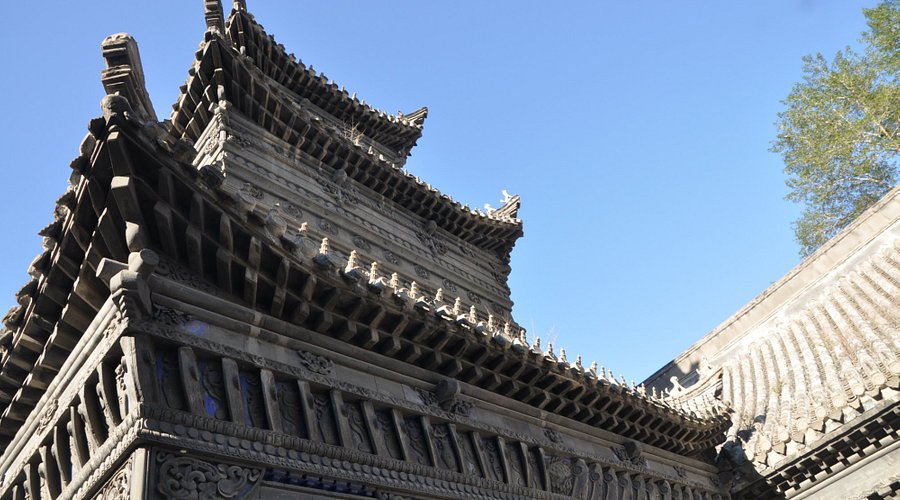
Qiqihar Bukui Qingzhensi.
The Rich History of Qiqihar Bukui Qingzhensi
The Qiqihar Bukui Qingzhensi, also known as the Bukui Mosque, is a remarkable historical landmark located in Qiqihar, Heilongjiang Province, China. Its origins date back to the Qing Dynasty, specifically in the year 1684, during the reign of Emperor Kangxi. This makes it one of the oldest mosques in the region, constructed a full seven years before the establishment of Qiqihar city itself.
Initially built by the Gede Mu sect of Islam, the mosque started as a modest structure comprising five simple grass huts. Over the years, it underwent numerous renovations and expansions, evolving into the impressive architectural ensemble we see today. The mosque complex consists of two primary sections: the eastern mosque, which was established first, and the western mosque, completed in 1852 by the Zheherinye sect. These two facilities are connected by a shared wall and a porch, forming a cohesive historical site that reflects the Islamic architectural style of the time.
Bukui Mosque is distinguished not only by its historical significance but also by its architectural features. Covering an area of 5,495 square meters with a building area of 1,311 square meters, it stands as the largest and oldest Islamic religious structure in Heilongjiang Province. The mosque has been recognized as a provincial-level key cultural relic, underlining its importance in Chinese history and culture.
In 2006, the mosque was officially listed as one of the sixth batch of national key cultural heritage sites by the State Council of China, further emphasizing its value in the preservation of Islamic heritage in the region. The mosque’s rich history is intertwined with the development of the local Muslim community, serving as a center for religious, cultural, and social activities for over three centuries.
Visitors to the Bukui Mosque can appreciate not only its historical significance but also its serene atmosphere, making it a key destination for those exploring the diverse cultural tapestry of Qiqihar. As one walks through this sacred space, the echoes of its long-standing traditions and the stories of the people who have worshiped here resonate, offering a glimpse into the past of this unique region.
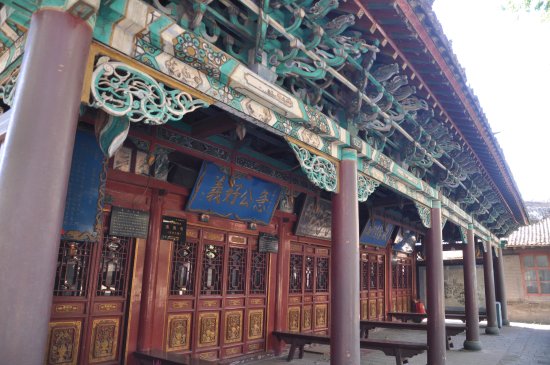
Qiqihar Bukui Qingzhensi.
Main Highlights: What to See at Qiqihar Bukui Qingzhensi
Nestled in the heart of Qiqihar, the Bukui Qingzhensi (卜奎清真寺), also known as the Xin Hai Family Mosque, stands as a testament to the rich Islamic heritage of the region. As one of the largest and most historically significant mosques in Heilongjiang Province, it offers a unique glimpse into the architectural and cultural fusion that characterizes Qiqihar.
Architectural Marvel
Constructed in 1684, the mosque was built seven years prior to the establishment of Qiqihar city itself, making it a cornerstone of the area’s history. The complex consists of two main structures: the Eastern Mosque, founded by followers of the Gede Muslim sect, and the Western Mosque, established by the Zhehelinye sect in 1852. Together, they form a rectangular layout with a combined area of 5,495 square meters, showcasing traditional Islamic architectural elements that have been preserved over the centuries.
Cultural Significance
Recognized as a provincial-level key cultural relic protection unit, Bukui Qingzhensi not only serves as a place of worship but also as a historical landmark. The mosque’s rich history is interwoven with the narratives of the local Muslim community, reflecting the enduring faith and cultural contributions of Islam to the region.
Visitor Experience
Open from 8:00 AM to 5:00 PM, visitors can explore the serene grounds and appreciate the intricate design and tranquil atmosphere. The mosque’s architecture includes decorative tiles and ornate features that invite contemplation and admiration. Although access to the interior is limited, the exterior alone is a stunning sight, providing ample opportunity for photography and exploration.
Nearby Attractions
After visiting the mosque, take a stroll to the nearby Peace Square, where memorials commemorate the history of the region, including significant events from the Second Sino-Japanese War. This juxtaposition of spiritual and historical significance enhances the experience of exploring Qiqihar.
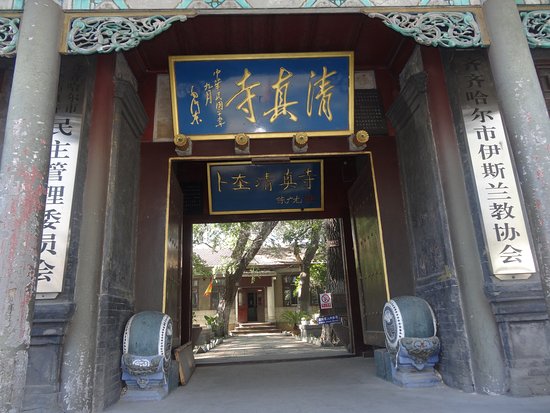
Qiqihar Bukui Qingzhensi.
Whether you’re a history enthusiast, an architecture aficionado, or simply in search of a peaceful retreat, Bukui Qingzhensi offers a fascinating glimpse into the past, making it a must-visit on your journey through Qiqihar.
Planning Your Visit: A Practical Guide
Practical Guide to Qiqihar Bukui Qingzhensi (卜奎清真寺)
Visiting the Qiqihar Bukui Qingzhensi, or Bukui Mosque, is a culturally rich experience that offers insight into Islamic architecture and the historical significance of this site in China. Here’s a practical guide to help you make the most of your visit.
Location and Getting There
The Bukui Mosque is situated at 38 Labor East Road, Jianhua District, Qiqihar City, Heilongjiang Province. It is easily accessible via public transportation, including buses and taxis, which frequently operate in the city. If you’re driving, ample parking is available nearby.
Opening Hours
The mosque is open to visitors from 8:00 AM to 5:00 PM. It’s advisable to arrive early to fully appreciate the architecture and take photographs without the crowds.
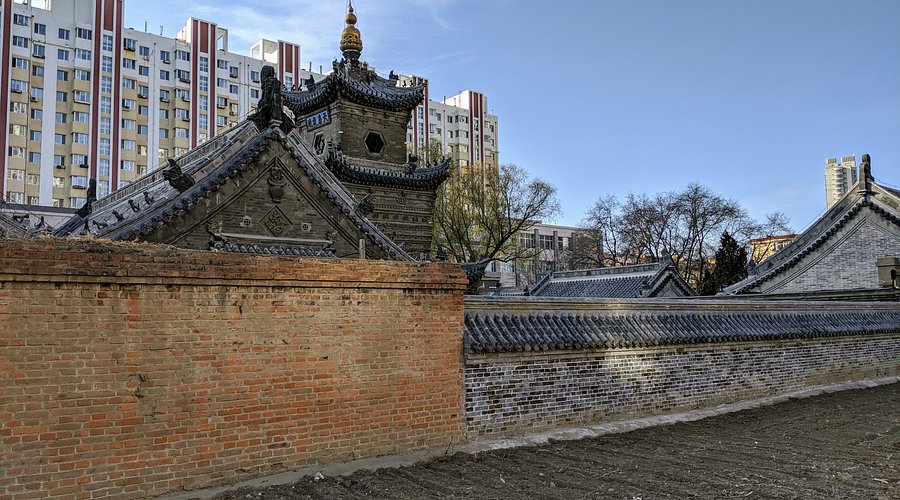
Qiqihar Bukui Qingzhensi.
Admission Information
Entry to the Bukui Mosque is free of charge, making it a budget-friendly destination for travelers. Donations are welcomed and can contribute to the preservation of this historical site.
Architectural Highlights
This mosque is one of the oldest and largest Islamic religious buildings in Heilongjiang Province, with a history dating back to 1684. The structure comprises two main sections, the East and West mosques, which are connected by a corridor. The East Mosque was initially built by the Gede Muslim sect, while the West Mosque was erected by the Zhelin sect in 1852.
The layout is rectangular, with a total construction area of 1,311 square meters and a land area of 5,495 square meters. Noteworthy features include intricate tile work, majestic domes, and traditional Islamic architectural elements that reflect the rich cultural heritage of the region.
Cultural Significance
The Bukui Mosque serves not only as a place of worship but also as a cultural landmark that showcases the enduring legacy of Islamic influence in northeastern China. It is recognized as a provincial-level key cultural relic protection unit, reflecting its importance in Chinese history.
Visitor Etiquette
When visiting the mosque, it is crucial to maintain a respectful demeanor, as it is an active place of worship. Here are some guidelines to follow:
– Dress modestly; women should wear long skirts or dresses, and men should avoid shorts.
– Be quiet and refrain from disruptive behavior.
– Photography is generally allowed, but it’s best to ask for permission, especially during prayer times.
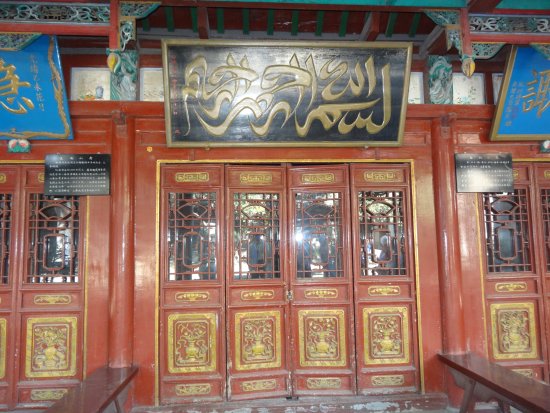
Qiqihar Bukui Qingzhensi.
Nearby Attractions
After your visit to the mosque, consider exploring other nearby sites:
– Peace Square: A significant memorial dedicated to the resistance against Japanese aggression, featuring impressive monuments and a serene atmosphere.
– Qiqihar Halal New Village: Experience local culture and cuisine, particularly if you’re interested in halal food options.
– Zhalong Nature Reserve: Located a short drive from the city, this wetland area is famous for its population of red-crowned cranes and is perfect for nature enthusiasts.
Tips for Travelers
- Best Time to Visit: Spring and autumn offer mild weather, making it an ideal time for sightseeing.
- Local Cuisine: Don’t miss out on trying local dishes at nearby halal restaurants to enhance your cultural experience.
- Language: While Mandarin is the primary language, some locals may speak a bit of English, especially in tourist areas. A translation app can be handy.
By following this guide, you can ensure a fulfilling visit to Qiqihar Bukui Qingzhensi, enriching your understanding of the local culture and history. Enjoy your travels!
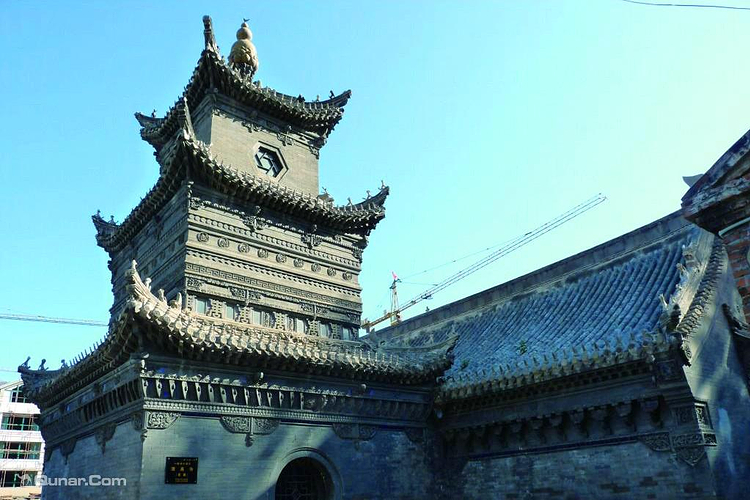
Qiqihar Bukui Qingzhensi.
Tickets, Hours, and Booking
Visiting Qiqihar Bukui Qingzhensi (卜奎清真寺), a significant Islamic architectural site in Heilongjiang Province, is a must for those interested in history and culture. Here’s what you need to know about ticketing for this remarkable destination:
Ticket Information
-
Admission Fee: Entry to Bukui Qingzhensi is free of charge. This allows visitors to explore the intricacies of the mosque without any financial barrier, making it an accessible site for everyone.
-
Opening Hours: The mosque is open to the public from 8:00 AM to 5:00 PM. It’s advisable to plan your visit within these hours to fully appreciate the architecture and serene environment.
-
Location: You can find Bukui Qingzhensi at No. 24, Qingzhen Road, Jianhua District, Qiqihar City. The mosque is situated in a central area, making it easy to include in your itinerary while exploring other local attractions.
-
Visitor Tips: While there is no charge for entry, it is recommended to dress modestly when visiting the mosque, as a sign of respect for the religious site. Additionally, guided tours or informational pamphlets may enhance your experience, so consider checking ahead for any available resources.
This historic mosque not only serves as a place of worship but also stands as a testament to the rich cultural tapestry of the region. Enjoy your visit and immerse yourself in the peaceful ambiance of Bukui Qingzhensi!
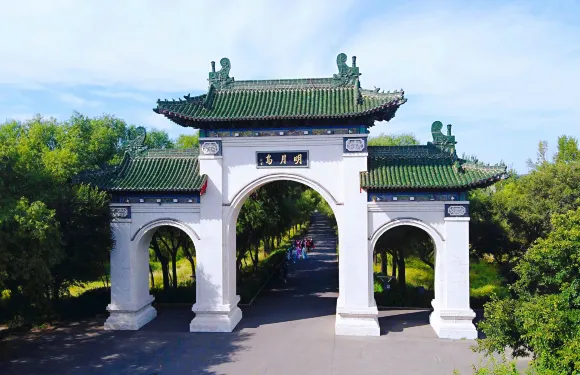
Qiqihar Bukui Qingzhensi.
How to Get There
When planning your visit to Qiqihar Bukui Qingzhensi (卜奎清真寺), understanding the transportation options available will enhance your travel experience. This historic mosque is located in Qiqihar City, Heilongjiang Province, and has several convenient ways to reach it.
Getting There
By Air
The nearest airport to Qiqihar is Qiqihar Sanjiazi Airport (NDG), which is approximately 14 kilometers from the city center. This airport offers domestic flights to major cities in China. From the airport, you can take a taxi or pre-arrange a shuttle service to your accommodation or directly to the mosque.
By Train
Qiqihar Railway Station is a well-connected hub, with frequent services from major cities including Harbin, Daqing, and Shenyang. Once you arrive at the station, you can catch a taxi or use local buses to reach the mosque. The station is about 3 kilometers away, making it a short ride to your destination.
By Bus
Local buses are available throughout Qiqihar, with routes that can take you close to the mosque. The city’s public transportation system is affordable and efficient, making it an excellent option for budget travelers. Look for buses that head towards the Jianhua District, where the mosque is located.
By Taxi
Taxis are readily available and are a comfortable way to travel around Qiqihar. You can hail a taxi on the street or book one through a ride-hailing app. The fare from the city center to Bukui Qingzhensi usually ranges around 10-20 RMB, depending on traffic.
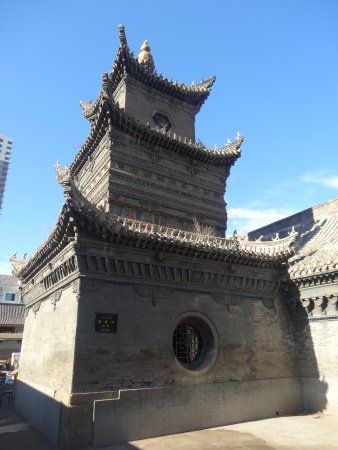
Qiqihar Bukui Qingzhensi.
By Bicycle or Walking
If you’re staying nearby, consider exploring the area by bicycle or on foot. Qiqihar is relatively flat, and cycling can be a pleasant way to see the city. Walking to the mosque can also be enjoyable, allowing you to immerse yourself in the local culture along the way.
Local Transportation
For those seeking to explore more of Qiqihar, the city has a reliable public transport system. Buses frequently run to popular attractions, and taxis are easily accessible. For those who prefer flexibility, renting a bicycle or scooter can provide a unique way to navigate the city.
Tips for a Smooth Journey
- Language: While some locals may speak basic English, having a translation app or a written address of your destination in Chinese can be very helpful.
- Cash: Although many places accept mobile payments, it’s advisable to have some cash on hand for transportation and smaller purchases.
- Travel Time: Depending on traffic, plan for extra time when traveling during peak hours, especially in the mornings and evenings.
By understanding your transportation options, you can ensure a seamless visit to Qiqihar Bukui Qingzhensi, allowing you to focus on enjoying the rich history and culture this beautiful mosque has to offer.
Local Cuisine and Accommodation
When visiting the historic Qiqihar Bukui Qingzhensi, you’ll find not only a rich cultural experience but also a delightful array of food and accommodation options that reflect the local flavor and hospitality of this vibrant city.
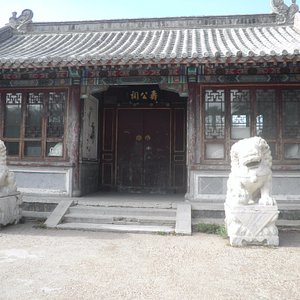
Qiqihar Bukui Qingzhensi.
Where to Stay
Qiqihar offers a variety of accommodations to suit different tastes and budgets. Here are some top picks:
-
Qiqihar National Forest Park Hotel
Nestled within the beautiful surroundings of the National Forest Park, this hotel offers a serene escape from the city hustle. Guests can enjoy comfortable rooms with stunning views of the forest and nearby lakes, making it an ideal choice for nature lovers. -
Kumning Shuqizhi Apartment
Located centrally, this apartment-style accommodation provides a cozy home-away-from-home experience. Ideal for families or groups, it offers spacious rooms with kitchen facilities, allowing guests to prepare their meals if they choose. -
Longjiang Jiayuan Hotel
This hotel is known for its modern amenities and elegant design. Located close to major attractions, it provides easy access to Qiqihar’s cultural sites. The hotel features a restaurant that serves a variety of local and international dishes. -
Xinhai Business Hotel
Offering competitive rates, this business-oriented hotel is perfect for travelers looking for comfort without breaking the bank. It provides essential amenities, including free Wi-Fi and a convenient location near local eateries and shops.
Dining Options
After exploring the architectural beauty of Bukui Qingzhensi, indulge in the local culinary scene. Here are some recommended dining spots:
-
Liulogu Iron Pot Stew (Liu Luoguo Tiegua)
Located near the city center, this restaurant specializes in traditional iron pot stews. The rich flavors and hearty portions make it a favorite among locals and visitors alike. Be sure to try their signature dishes featuring fresh ingredients and savory broths. -
Xuefu Food Walking Street
This bustling food street offers a variety of local street food, from spicy skewers to sweet pastries. As you stroll along, sample different dishes and experience the lively atmosphere that makes Qiqihar’s food scene unique. -
Dongfangyue Restaurant
For those looking for a more refined dining experience, Dongfangyue offers a menu that combines local flavors with contemporary culinary techniques. The restaurant is known for its welcoming ambiance and attentive service, perfect for a special evening out. -
Hala New Village
Situated in a culturally rich area, this restaurant showcases traditional Daurs and Hui cuisine. Featuring dishes like lamb skewers and handmade dumplings, it provides an authentic taste of the region’s culinary heritage.
Whether you’re savoring delicious local dishes or relaxing in comfortable accommodations, Qiqihar offers a wonderful blend of experiences that will enhance your visit to Bukui Qingzhensi. Enjoy your stay in this charming city!
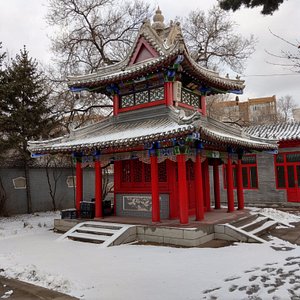
Qiqihar Bukui Qingzhensi.
Frequently Asked Questions
-
What are the opening hours of Qiqihar Bukui Qingzhensi?
Qiqihar Bukui Qingzhensi is open daily from 8:00 AM to 5:00 PM. -
Is there an admission fee to visit the mosque?
Admission to Qiqihar Bukui Qingzhensi is free of charge. -
What is the historical significance of Qiqihar Bukui Qingzhensi?
Built in 1684, Qiqihar Bukui Qingzhensi is one of the oldest and largest Islamic architectural sites in Heilongjiang Province. It is recognized as a national key cultural relic protection unit, symbolizing the rich Islamic heritage in the region. -
Can visitors enter the prayer areas of the mosque?
Yes, visitors are allowed to enter the mosque’s prayer areas, but it is recommended to dress modestly and respect the local customs. -
How do I get to Qiqihar Bukui Qingzhensi?
The mosque is located at 24 Qingzhen Road in Jianhua District. It is accessible by public transport, and taxis are also available in the area. -
Are there any guided tours available?
While there may not be formal guided tours, local volunteers or mosque staff may provide information to visitors upon request. -
What nearby attractions should I visit after the mosque?
After visiting Qiqihar Bukui Qingzhensi, consider checking out nearby attractions such as Peace Square and the Harla New Village, which are both within a short distance. -
Is photography allowed inside the mosque?
Photography is generally permitted, but it’s advisable to ask for permission, especially during prayer times or if other visitors are present.
Final Thoughts on Your Trip
Visitors to Qiqihar’s Bukui Qingzhensi (卜奎清真寺) will find themselves enveloped in a rich tapestry of history and culture that speaks to the resilience and diversity of the region. This remarkable mosque, one of the largest and oldest Islamic structures in Heilongjiang Province, is not just an architectural marvel but also a testament to the enduring spirit of the Muslim community in China.
As you wander through its grounds, you’ll appreciate the intricate details of the buildings, each telling a story of faith and tradition that has spanned centuries. The serene atmosphere invites reflection and offers a unique glimpse into the harmonious coexistence of various cultures within Qiqihar.
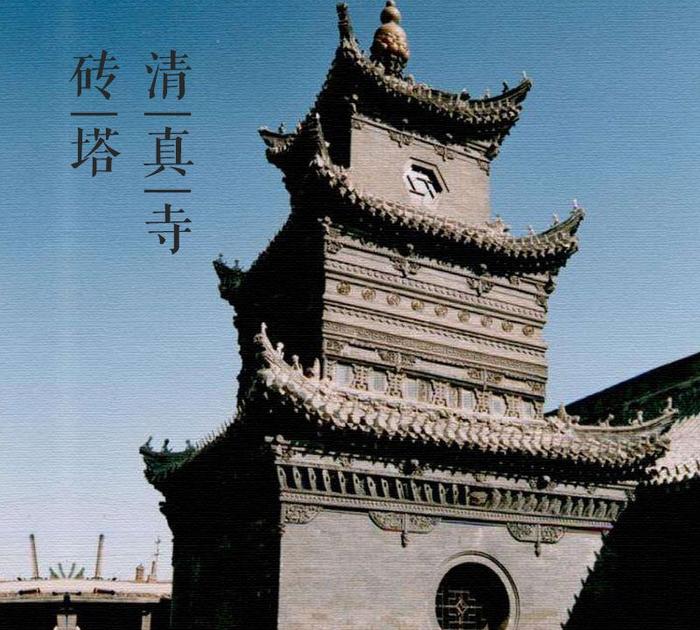
Qiqihar Bukui Qingzhensi.
Whether you’re a history enthusiast, a culture seeker, or simply in search of a peaceful retreat, Bukui Qingzhensi promises an enriching experience. It stands as a beacon of heritage, welcoming all to explore its beauty and significance. Make sure to include this extraordinary site in your travel itinerary, and allow it to deepen your understanding of the diverse narratives that shape this vibrant region.
